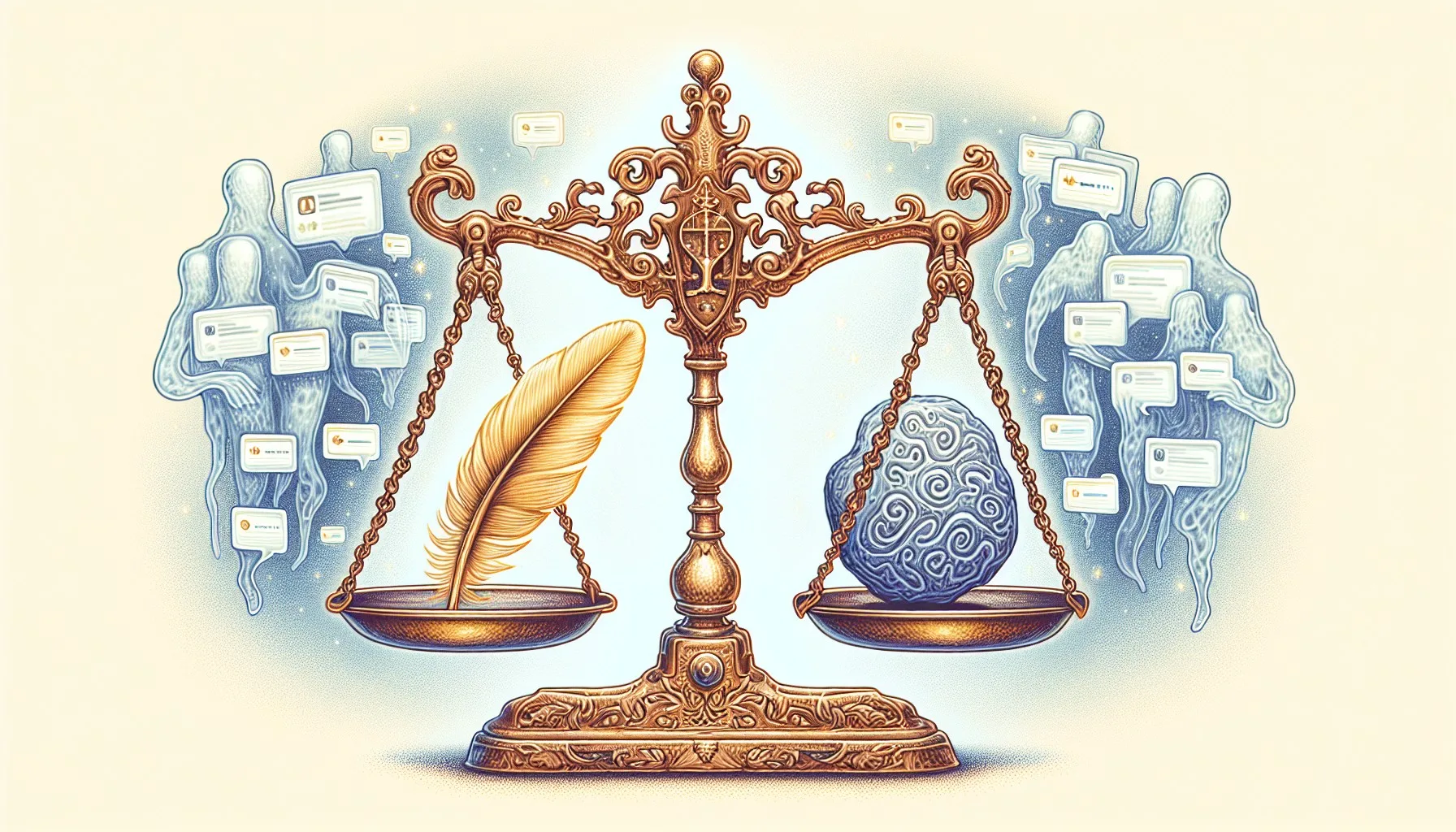In today’s digital world, online reviews play a crucial role in consumer decision-making.
A staggering 95% of online shoppers read reviews before making a purchase, which highlights the impact of consumer behavior on the market.
This article explores the importance of reviews, how often consumers read reviews, where they read them, and what businesses need to know to leverage this trend.
Key Takeaways
A striking 95% of shoppers consult online reviews before making a purchase, highlighting the critical influence of consumer reviews on purchase decisions.
Fake reviews remain a significant issue, with 94% of Facebook users wary of review authenticity. Initiatives like the FTC cracking down on over 700 businesses for fake reviews underline the importance of maintaining trust.
Recent and relevant reviews hold considerable weight, with 83% of consumers favoring current reviews and 85% dismissing those older than three months, emphasizing the need for businesses to consistently gather fresh feedback.
The Prevalence of Online Reviews

Online customer reviews have become the currency of trust in the bustling marketplace, with a striking 95% of online shoppers consulting online reviews before a purchase.
In fact, most of them read online reviews to make informed decisions. This trend reflects the modern consumer’s reliance on others’ experiences. Brands compete not just among themselves, but also for positive exposure in the court of public opinion. It emphasizes the need for brands to create exceptional experiences that motivate customers to share their stories via online reviews.
Nearly half of all global internet users regularly add their voices to the online review mix, establishing a narrative that molds perceptions and influences economic trends.
How Often Do Consumers Read Reviews?

When exploring how frequently consumers consult reviews, it becomes apparent that a significant 98% of users interact with online reviews at least occasionally.
Review platforms play a crucial role in this process, providing a space for consumers to share and read about others’ experiences via consumer reviews.
This habit has become as commonplace as checking the weather, especially for local businesses where 77% of internet users regularly consult reviews to guide their choices. This behavior reflects a broader trend in consumer behavior, where the shared experiences of other consumers serve as a beacon in the decision-making process.
The landscape of review readership is textured with nuances, however.
Studies show that consumers with lower household incomes are often the most meticulous, always reading reviews likely due to their limited disposable income and the weight that each purchase carries.
In contrast, higher-income consumers exhibit a propensity to deep-dive into reviews particularly when it comes to splurging on pricier products.
Where Do Consumers Read Online Reviews?

When it comes to the platforms where consumers gather insights, a few giants dominate the landscape. The top platforms for online reviews are:
Google, with its expansive reach, supports a commanding 73% of all online reviews, making it the go-to source for consumers looking to evaluate local businesses. Indeed, the influence of Google is so pervasive that 81% of consumers are likely to check Google reviews first before making a purchasing decision.
Yelp, which boasts over 244 million reviews and is a popular platform for consumers to refer to before trying a new establishment.
Facebook, which is also a significant player in the review space.
TripAdvisor, which is widely used by travelers to evaluate hotels, restaurants, and attractions.

Social proof plays a crucial role in consumer decision-making, as when consumers read online reviews on these platforms it significantly influences their purchasing behavior.
These platforms collectively control the review space, with Yelp alone boasting over 244 million reviews, and nearly half of U.S. consumers referring to Yelp before trying a new establishment.
Yet the digital ecosystem is ever-evolving, and younger consumers are increasingly turning to social media platforms like Instagram and TikTok, with 34% and 23% respectively, using these channels as alternative sources for local business reviews.
This shift indicates a vibrant and diverse review culture, where traditional platforms coexist with newer, more visual-centric channels.
Consumers Trust Online Reviews

The cornerstone of the online review ecosystem is consumer trust. An astounding 87% of consumers trust online reviews as much as they do in personal recommendations from friends or family, a sentiment that has grown by 4% in the past year.
Such trust isn’t given lightly; it is earned through the consistency and authenticity of user-generated content that provides a detailed depiction of customer experiences with diverse brands and services.
However, this trust faces its share of challenges. The specter of fake reviews looms large, with a significant portion of consumers encountering what they believe to be ffake reviews across various platforms.
For the most part consumers trust reviews, but skepticism over fake reivews is compounded by the fact that a majority of consumers require a substantial volume of reviews to lend credence to high ratings.
Authenticity is further bolstered when reviews are attributed to named users rather than anonymous profiles, adding a layer of transparency that consumers appreciate.
Fake Reviews: Detection and Impact

The infiltration of fake reviews into the online sphere has been a persistent issue, affecting even the titans like Amazon and Google.
While review sites’ algorithms have become more adept at filtering out these deceptive practices, 94% of Facebook users remain wary of the review authenticity they encounter on the platform.
The repercussions of fake reviews extend beyond just consumer wariness; they can undermine the very foundation of trust that businesses strive to build with their audience.
In a decisive move to safeguard this trust, the Federal Trade Commission has taken action against over 700 businesses for fake reviews, reflecting a broader commitment to ensuring the integrity of online feedback.
The Better Business Bureau has also raised its voice against the tide of fake and incentivized reviews, underscoring the importance of authentic customer experiences in the digital age, especially when it comes to unsolicited online hotel reviews.
The Influence of Positive Reviews vs. Negative Reviews

Undoubtedly, customer reviews have the power to make or break a business. Positive reviews are a beacon that draw consumers in, with studies showing that they can lead to an increase in customer spending by up to one third.
This influence is profound, with 73% of consumers placing greater trust in local businesses that have a healthy volume of favorable reviews. Such is the power of a glowing review in an era where online word-of-mouth can dictate the trajectory of a business.
On the flip side, the influence of negative online reviews cannot be downplayed. A single negative review can deter potential customers from engaging with a business. Yet, all is not lost when a business encounters criticism. The silver lining lies in the response. Here are some key statistics:
89% of consumers report that a thoughtful reply to a negative review has positively shifted their impression of the business.
7 out of 10 consumers changed their opinion about a business after the business responded to a negative review.
95% of consumers suspect censorship or faked reviews when they don’t see any negative reviews.
This demonstrates that even in adversity, businesses have the opportunity to redeem themselves and turn a potential setback into a showcase of their commitment to a positive customer experience.
Review Frequency and Recency

The timing of reviews is crucial for gaining valuable consumer insights. Consumers are not just interested in what others have to say; they’re interested in what others have to say right now.
A significant 83% of consumers favor reviews that are recent and relevant, reflecting a desire for the most current and accurate representation of their potential experience with a brand.
Nearly half of these consumers consider the recency of reviews to be a critical factor in their decision-making process.
The appetite for fresh feedback has only intensified, with:
27% of consumers indicating that reviews from the past few weeks are particularly impactful
85% of consumers dismissing reviews older than three months as irrelevant
40% of consumers only considering the input from reviews left in the past 14 days
For businesses, this underscores the importance of maintaining a steady influx of fresh reviews.
The Role of Star Ratings

While star ratings often form the initial impression of a business for a consumer, the narrative accompanying those stars provides the true insights.
Over half of consumers are not content with a simple numerical rating; they seek the context provided by the written text in reviews. This thirst for detail is matched by an expectation that a business should have a minimum of 20 reviews in place before its average star rating is deemed trustworthy. Review quality is crucial as it provides deeper insights into customer experiences and satisfaction.
The bar is set high, with over 90% of consumers stating that they will consider a business only if it has at least a four-star rating. This expectation is not just about the numbers; it’s about the assurance of quality and the promise of a satisfactory experience.
Consumers are looking for that sweet spot between 4.0 and 5.0 stars, a range that signals excellence and reliability.
Responding to Reviews

The interaction between consumers and businesses is reciprocal, particularly apparent in the realm of online reviews and customer engagement.
A vast majority of 93% of consumers expect businesses to acknowledge their feedback. The clock is ticking, as over half of these consumers anticipate a response, particularly to negative reviews, within a week.
It’s a window of opportunity for businesses to demonstrate their commitment to customer service and to rectify any issues that may have arisen.
The stakes are high, as businesses that fail to engage with their reviewers risk losing revenue, with non-responsive businesses earning 9% less than their more communicative counterparts.
Yet, three-quarters of businesses are missing out on this crucial interaction. Timely and thoughtful responses can calm dissatisfied customers. For example, evidence suggest that patient satisfaction can double when negative feedback is addressed by a medical practice.
Methods of Requesting Reviews

Gathering customer reviews is as much an art as it is a science, and effective review requests are key to this process. The most fruitful reviews are often the result of strategic outreach, with 80% stemming from follow-up emails – a testament to their efficacy. But timing is everything. Identifying the opportune moments to request feedback, such as after a customer expresses satisfaction, can significantly boost the chances of receiving a review. Personalization adds another layer of effectiveness, reinforcing the bond between the business and its customers.
The techniques used to request reviews vary, with email, in-person, and social media requests being the most popular methods. Automation plays a pivotal role, with email and text reminders ensuring that review requests are not lost in the shuffle of daily life. Yet, it’s the personal touch, the genuine engagement with the customer’s experience, that often seals the deal.
Review Management Tools

Review managment software like ReputationStacker allow businesses to effortlessly navigate the ocean of feedback on various review platforms, including customer reviews on their preferred review sites. This robust system offers the following features:
Simplifies the review collection process by directing customers to key review sites
Aggregates insights on a singular dashboard, making review management a breeze
Supports over a hundred review platforms, ensuring that no voice goes unheard
Review monitoring is crucial for businesses to keep track of their online reputation and respond promptly to customer reviews.
The data gleaned from these reviews is invaluable, offering insights that can refine business strategies and enhance customer relationships.
As the digital landscape evolves, so does the toolkit for businesses to stay ahead. Embracing review management software like ReputationStacker is no longer a luxury—it’s a necessity for those looking to thrive in an environment where online reputation can be the linchpin of success.
Summary

In modern business, online reviews influence consumer decisions and connect consumer trust with business credibility.
As consumers increasingly turn to the personal recommendations from online reviews for guidance, businesses must not only encourage the wrirting of online customer reviews but also actively manage them.
Embracing the tools and strategies discussed here can transform reviews from mere feedback into catalysts for growth and success.
Frequently Asked Questions
How does the frequency of online reviews impact consumer decisions?
The recency of online reviews is crucial, as 83% of consumers prefer recent reviews when making decisions, and 85% consider reviews older than three months to be irrelevant.
Can negative reviews be beneficial for businesses in any way?
Negative reviews can be beneficial for businesses when handled correctly, as they present an opportunity to improve consumer perception and satisfaction.
Are reviews with text more important than reviews that only include star ratings?
Yes, reviews that include text are more imporant that reivews that only include star ratings as they provide valuable context for consumers, with 56% of them prioritizing written reviews for better understanding a business’s credibility.
What are the most effective methods for businesses to request reviews from customers?
The most effective methods for businesses to request reviews from customers include follow-up emails, in-person requests, and social media engagement, and personalization and timing are crucial for success.
Why are Google reviews important for local businesses?
Google reviews are crucial for local businesses because they significantly influence consumer decisions. With Google being the most popular search engine, having positive Google reviews can enhance a business’s visibility and credibility, attracting more local traffic and boosting sales.
How can review management tools like ReputationStacker benefit a business?
Review management tools like ReputationStacker can benefit a business by streamlining the review collection process, providing a central dashboard for review management, and offering insights to improve business strategies and customer satisfaction. This can greatly enhance the business’s online reputation and customer experience.

